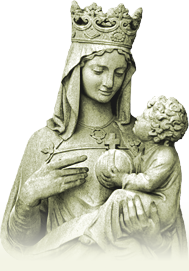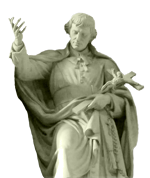Church
Words of Doctrine: Towards the Motu proprio
Rev. Nicola Bux and Rev. Salvatore Vitiello
Vatican City (Agenzia Fides) - The recent announcement of the imminent publication of a Motu proprio on the celebration of the Eucharist according to the rite of what is known as the Saint Pius V Missal approved in the latest edition by Blessed John XXIII, gave rise to keen interest among the media and among the ordinary faithful. Pending its publication very soon, it would seem opportune to illustrate two fundamental aspects of a similar procedure.
A recent text by Nicola Bux and Adriano Garuti bears the title, “Peter loves and unites. The personal responsibility of the Bishop of Rome for the universal Church”. It is precisely from this point of view that the Motu proprio to be shortly made public must be read: a free and sovereign act of a Pontiff who, by right and by the Church's faith in the primacy of Peter, has a personal responsibility which cannot be delegated to others, in the guidance of the universal Church.
Accepting the exercise of this responsibility is an integral part of the acceptance of faith due to the dogma of the primacy of Peter and in this sense calls all Catholics to love, to pray for and to obey the one who is called to be Bishop of Rome, the universal Shepherd of Church.
The Motu proprio should be welcomed by all since it is not a restrictive measure, but rather an 'extension' of options, in keeping with the now familiar Ratzinger line to "extend reason".
No one will be impeded in any way, at the most he will be 'prevented from impeding' celebrations according to the old rite. Down through the centuries the Church has never feared liturgical-ritual differences, as long as they do not signify differences in faith, and she has always tolerated legitimate linguistic, geographical and ritual distinctions, on the simple condition that these expresses the truth faith of the Church.
It is difficult to see why some people, often champions of the most libertarian theories in many other fields, today fear greater freedom in the choice of rite in which to celebrate the Divine Liturgy. A founded impression, that precisely they are the promoters of the pernicious liturgical creativity which too often distorts our rites preventing them from speaking to the People of God. Who is afraid of freedom? No one, let us hope. The Motu proprio is an act of the personal responsibility of the Pope who is extending the freedom of the Church. (Agenzia Fides 5/7/2007; righe 28, parole 377)
A recent text by Nicola Bux and Adriano Garuti bears the title, “Peter loves and unites. The personal responsibility of the Bishop of Rome for the universal Church”. It is precisely from this point of view that the Motu proprio to be shortly made public must be read: a free and sovereign act of a Pontiff who, by right and by the Church's faith in the primacy of Peter, has a personal responsibility which cannot be delegated to others, in the guidance of the universal Church.
Accepting the exercise of this responsibility is an integral part of the acceptance of faith due to the dogma of the primacy of Peter and in this sense calls all Catholics to love, to pray for and to obey the one who is called to be Bishop of Rome, the universal Shepherd of Church.
The Motu proprio should be welcomed by all since it is not a restrictive measure, but rather an 'extension' of options, in keeping with the now familiar Ratzinger line to "extend reason".
No one will be impeded in any way, at the most he will be 'prevented from impeding' celebrations according to the old rite. Down through the centuries the Church has never feared liturgical-ritual differences, as long as they do not signify differences in faith, and she has always tolerated legitimate linguistic, geographical and ritual distinctions, on the simple condition that these expresses the truth faith of the Church.
It is difficult to see why some people, often champions of the most libertarian theories in many other fields, today fear greater freedom in the choice of rite in which to celebrate the Divine Liturgy. A founded impression, that precisely they are the promoters of the pernicious liturgical creativity which too often distorts our rites preventing them from speaking to the People of God. Who is afraid of freedom? No one, let us hope. The Motu proprio is an act of the personal responsibility of the Pope who is extending the freedom of the Church. (Agenzia Fides 5/7/2007; righe 28, parole 377)
Para citar este texto:
"Words of Doctrine: Towards the Motu proprio"
MONTFORT Associação Cultural
http://www.montfort.org.br/eng/veritas/igreja/direcao_motu_proprio/
Online, 16/12/2025 às 07:29:40h








